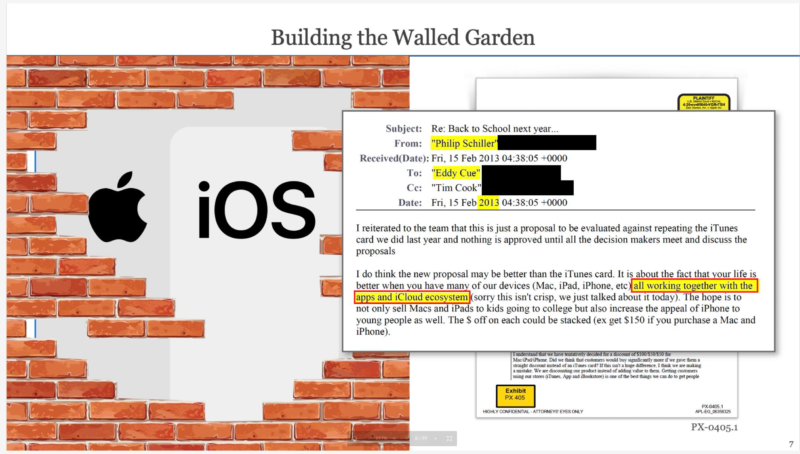Enlarge / An exhibit from the district court case arguing that Apple’s “walled garden” was an attempt to juice profits. (credit: Apple vs. Epic court documents)
It has been over a year now since a US District Court ruled that Apple did not violate antitrust law by forcing iOS developers (like plaintiff and Fortnite-maker Epic Games) to use its App Store and in-app payments systems. But that doesn’t mean the case is settled, as both sides demonstrated Monday during oral arguments in front of the 9th Circuit Court of Appeals.
The hearing was full of arcane discussion of legal standards and procedures for reviewing the case and its precedents, as well as input from state and federal governments on how the relevant laws should be interpreted. In the end, though, the core arguments before the appeals court once again centered on issues of walled gardens, user lock-in, and security versus openness in platform design.
Security is the “Apple difference”
In defending Apple’s position, counsel Mark Perry argued that the company’s restraints on iOS app distribution were put in place from the beginning to protect iPhone users. Based on its experience managing software security and privacy on Macs, Apple decided it “did not want the phone to be like a computer. Computers are buggy, they crash, they have problems. They wanted the phone to be better.”
Read 14 remaining paragraphs | Comments

